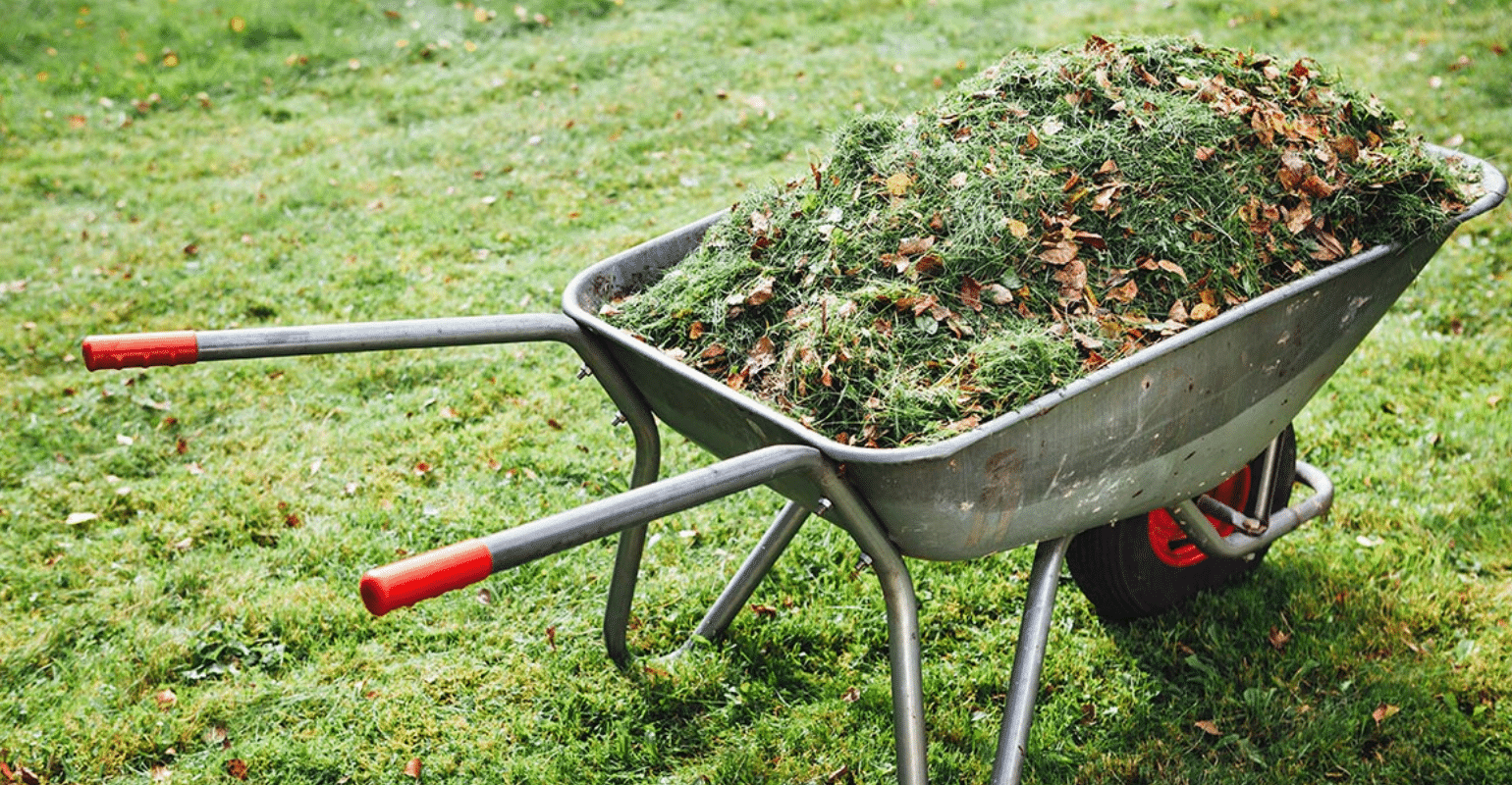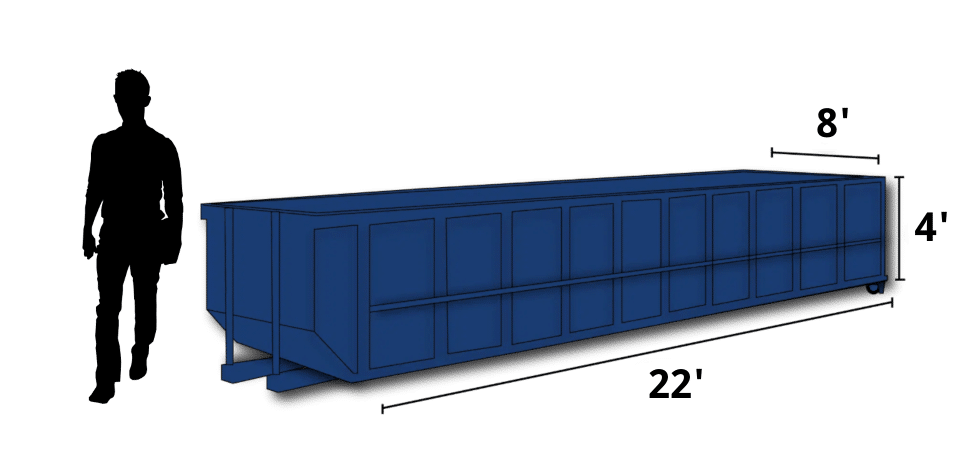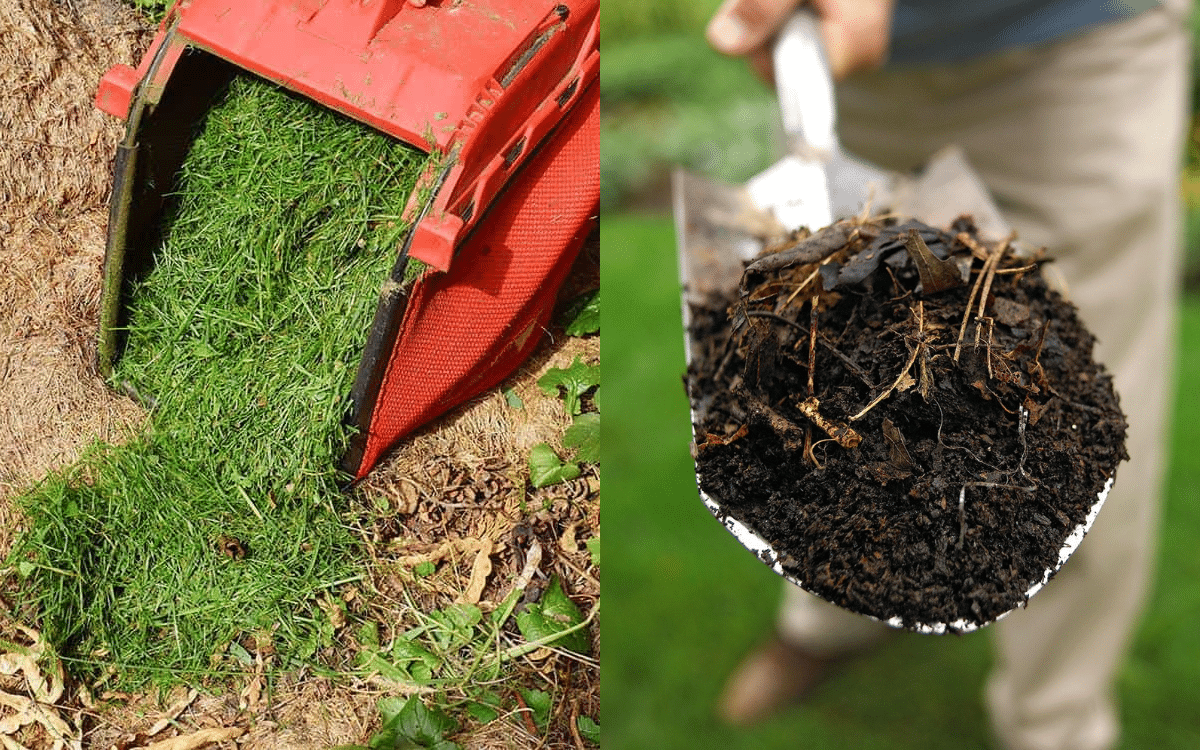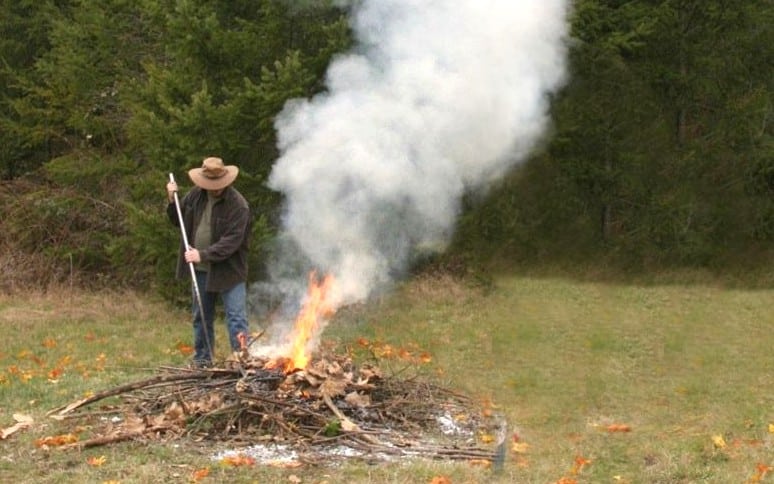Yard Waste Disposal
We have sizes available to handle any
project give us a call today!

Dumpster Rentals for Yard Waste
When your yard waste piles up beyond what the curb can handle or local regulations complicate disposal, we're here to assist. Simply have a container delivered to your property, making the removal of debris like grass clippings and sticks easier than ever. Contact us today to rent a yard waste dumpster for your project.
Our Top Choice for Yard Waste Disposal
The 20-yard dumpster is our most common option for landscaping debris. It's the ideal choice for ensuring you stay within weight limits and steer clear of extra charges, especially for tasks like tree limb removal or hauling general yard waste.
Standard Weight Capacity: 2-3 tons or 4,000-6,000 pounds
Average Pricing: $300 to $700
Costs can vary by location.
*Uncertain if this bin suits your needs? Explore our range of roll-off container sizes, designed to tackle projects of any scale.

Average Weight of Common Yard Waste Materials
| Type of yard waste | Weight | Amount that will fit in a 20 yard dumpster |
|---|---|---|
| Dry Dirt | 1 cubic yard = 2000 lbs | 5 cubic yards |
| Wet Dirt | 1 cubic yard = 3000 lbs | 1.5 cubic yards |
| Rock and Gravel | 1 cubic yard = 2500 lbs | 4 cubic yards |
| Tree Logs | 10 logs at 10" diameter = 1000 lbs | 100 logs |
| Leaves/Brush | 1 cubic yard = 1000 lbs | 10 cubic yards |
Considerations When Renting a Dumpster for Yard Waste
Local Laws can Vary
Yard waste must not be disposed of in municipal landfills. When filling a dumpster with yard waste and inert debris, it's crucial to keep municipal waste (like trash and construction materials) separate. This segregation facilitates the transportation of waste to the correct processing facility.
Prior to renting a yard waste dumpster, it's advisable to research local environmental regulations to guarantee compliance.
Our team is available to help ensure adherence to local regulations. Alternatively, click below for access to laws and regulations in your vicinity.
Type of Project
Our yard waste containers are tailored for tidying up after a range of landscaping endeavors. Whether you're clearing away dead plants, twigs, or brush from your property, or managing organic waste within a broader construction project, we offer the perfect containers for your needs. Our containers are particularly suited for tasks such as:
- Shrub Removal
- Seasonal cleanups
- Environmental Remediation
- Tree trimming or removal
- Backyard or lot renovations
*Please note that there may be local restrictions, we'll review any special requirements at the time of rental.
Ready to Rent a Dumpster? Give Us a Call
Additional Disposal Options to Consider
Compost or Mulch
Mulching grass clippings involves finely chopping the grass after mowing and leaving it on the lawn rather than collecting and disposing of it. This process returns essential nutrients to the soil, acting as a natural fertilizer. As the clippings decompose, they release nitrogen, potassium, and other vital nutrients back into the grass, promoting healthy growth. Mulching also helps retain moisture in the soil, suppresses weed growth, and moderates soil temperature. Overall, mulching grass clippings not only simplifies lawn care but also contributes to a greener, more vibrant lawn.
Composting offers a dual benefit, clearing dead leaves and clippings from your garden while yielding valuable organic compost. Although you can purchase compost at a garden store, why not capitalize on the no-cost option by mastering the art of composting your garden waste?
To start turning yard waste into compost, it's crucial to grasp the composting process. Composting entails layering brown waste (such as dried leaves) and green waste (like vegetable peelings and spent tomato vines) while ensuring they receive ample sunlight, water, and air for swift decomposition. The resultant compost can enrich garden soil, enhancing its texture and nutrient content.

Yard Waste Burning
Depending on local regulations burning yard waste can be an option. We recommend following these important steps.
- Check conditions. Never burn when it's windy or dry.
- Check local regulations. Be sure to check your local regulations often a permit is required to burn.
- Only burn-allowed waste. You can burn dry, natural vegetation on your property unless local ordinances prohibit it. However, burning household trash, plastic, or tires is not advisable and may be illegal in certain areas. It's important to check your local ordinances to ensure compliance.
- Look up. Always choose a safe site to burn clear of powerlines, overhanging limbs, buildings, vehicles, and equipment.
- Look around. Your burn site should be surrounded by 10 feet of dirt or gravel in all directions. Be sure to keep the area watered down and have a shovel handy.
- Prepare your waste. Keep your piles small and manageable.
- Whether it's required or not, it's essential to monitor your fire until it's fully extinguished. To do so, thoroughly douse the fire with water, use a shovel to overturn the ashes, and then douse it again. Repeat this process multiple times to ensure complete extinguishment.
- Regularly inspect the burn area for the next few days and even weeks after the burn, particularly during warm, dry, and windy weather conditions.

Environmentally friendly options for yard waste disposal include composting, mulching, or utilizing local yard waste recycling programs. These methods help divert organic materials from landfills and can even provide nutrient-rich compost for gardens. Many communities offer facilities or programs for recycling or composting yard waste. This may include drop-off locations for yard waste, curbside collection programs, or composting facilities that accept organic materials. Contacting local waste management authorities or checking municipal websites can provide information on available options in your area. Composting yard waste at home involves creating a designated compost pile or bin where organic materials like grass clippings, leaves, and vegetable scraps can decompose naturally. With the right balance of brown (carbon-rich) and green (nitrogen-rich) materials, along with regular turning and moisture management, you can produce nutrient-rich compost for your garden. In many areas, yard waste is not permitted in regular trash pickups due to environmental regulations. It’s typically recommended to dispose of yard waste separately to facilitate composting or proper recycling.
Have any additional Questions?
Call us today and we would be happy to walk you through the rental process.
